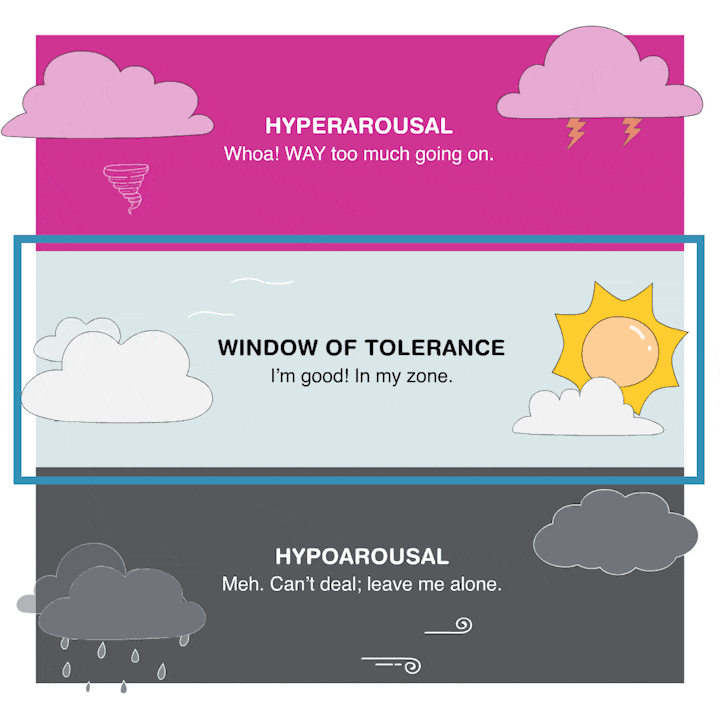Why You Might Feel Easily Overwhelmed as a Trauma Survivor
All of us feel overwhelmed sometimes, even with little things. But sometimes those of us who have gone through particularly difficult or traumatic situations find that they feel overwhelmed even more frequently. This can sometimes lead us to isolate, use unhealthy coping skills, or even to lash out at others when we know they don’t deserve it. Sometimes it can be helpful to understand this by using a topic called the “window of tolerance.”
The window of tolerance is a metaphor for what we feel like we can and cannot cope with. When we have an experience that feels difficult but still manageable, we are said to be within our window of tolerance. But when things feel unmanageable or we start to cope in unhealthy ways, we are outside of our window of tolerance. We all have our own windows of tolerance, and of things that feel manageable and those that feel unmanageable. Often, however, trauma survivors tend to find that their window of tolerance is smaller, meaning that fewer experiences fit inside the window and they become overwhelmed more easily.
When things are outside of our window of tolerance, we experience either “hyperarousal” (i.e. too much emotional activation, like when you are in fight-or-flight), or “hypoarousal” (too little emotional activation, like when you feel frozen or disconnected from your surroundings). The goal for a lot of coping skills is to bring you back inside the window of tolerance, either by lowering activation when it is too high or raising it when it is too low.
A goal for all of us, whether we have survived trauma or not, is to increase our ability to recognize when we are outside of our window of tolerance and find and use healthy ways to get back there.
Here are a couple of ideas to get you started. It’s helpful sometimes to try something new, but also try to find some that you feel able to do and that you think might be likely to work for you:
For trauma survivors in particular, who sometimes have a smaller window of tolerance, an additional goal is to increase the size of the window so that more difficult experiences still feel tolerable. This can be done over time in therapy by processing the impacts of trauma, finding ways to slow down thoughts and reactions, and finding coping skills that really feel helpful for you. There is a really big difference between how it feels when something is difficult but manageable, and how it feels when you can’t cope.
Trauma can feel overwhelming in itself and can lead other things to also feel unmanageable. But things can start to feel better with time, work, and therapy with a therapist that you feel connected with.

